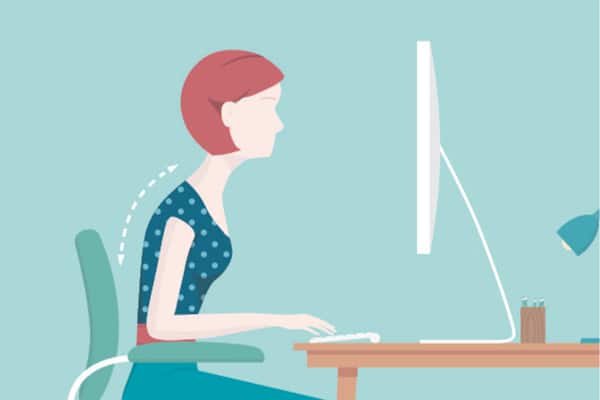Deaths in 2015:
- Sharks 2
- Saltwater crocodile: 1 death
- Motor vehicle: 1209 deaths
- Comfy sofa and office chair: 7000+
We live in a society where most of us now sit for the majority of the day. We wake up, sit to eat breakfast, we sit on the way to work, sit at work, sit at lunch, back to sitting at work, sit on the commute home, hopefully get an hour of exercise in after work, sit to eat dinner, sit to read or watch TV and then off to bed again.
Obesity in Australia has more than doubled over the last 20 years, meaning that 14-million Aussies are now overweight or obese (THE MAJORITY!!). Research shows that obesity has now overtaken smoking as Australia’s leading cause of illness and death, and is a major risk factor for heart disease, stroke, osteoarthritis, mental health disorders and many types of cancer.
Some readers may be thinking, “Yeah, but I also do 1 hour of exercise everyday and I’m not overweight, so I’m fine, right?” Wrong.
Research now shows that even if you get the recommended dose of physical exercise (30mins of moderate to vigorous intensity exercise 5 days/week), sitting for long periods throughout the day can still have seriously negative effects on waist circumference (obesity), blood pressure, blood glucose (diabetes), triglycerides (fats), and cholesterol. A term has been coined for people who sit all day but still get there exercise requirements: The active couch potato.
As well as contributing to serious medical conditions, sitting is also a leading cause of musculoskeletal issues such as back pain, neck pain, headaches and osteoarthritis. Prolonged postures put incredible amounts of strain and stress on the muscles, joints and tissues of the body, causing overload and pain.
Human beings are designed to move. Our evolutionary ancestors would walk, run and climb for hours on end in order to hunt for food, escape from danger and find shelter. Technology, work environments and societal norms have led many of us to sedentary lifestyles (including the active couch potato), and something has to change.
Well that’s all very depressing, so what now?
The good news is that short interruptions in sitting-time can limit the aforementioned negative effects of sitting, even if the overall sitting time doesn’t change. Here are some simple tips for interrupting or reducing your sitting time:
- Alternate between sitting and standing at work: standing work-desks are a worthy investment, but if your employer won’t pay, then simply standing up and stretching every 20 minutes is helpful (piled up books can also double as a standing work-desk)
- Find cues to stand: stand whilst on the phone, walk over and talk to colleagues rather than emailing them, move the printer or paper bin away from your desk
- Have standing or walking meetings
- Stand up on trains and buses
- Get off the bus/train or park your car a bit further away
- Ask your physio to show you some desk-stretches which counter the muscles that are shortened in sitting
- Take the stairs over the elevator
- Set movement reminders on your phone
- Meet friends for a walk or jog rather than a coffee or wine
Not only will you be reducing your risk of metabolic diseases and spinal pain, but sitting less and moving more also has amazing effects on your energy levels, focus, concentration and mood (reducing the need for that 3pm sugar fix).
Happy moving!




